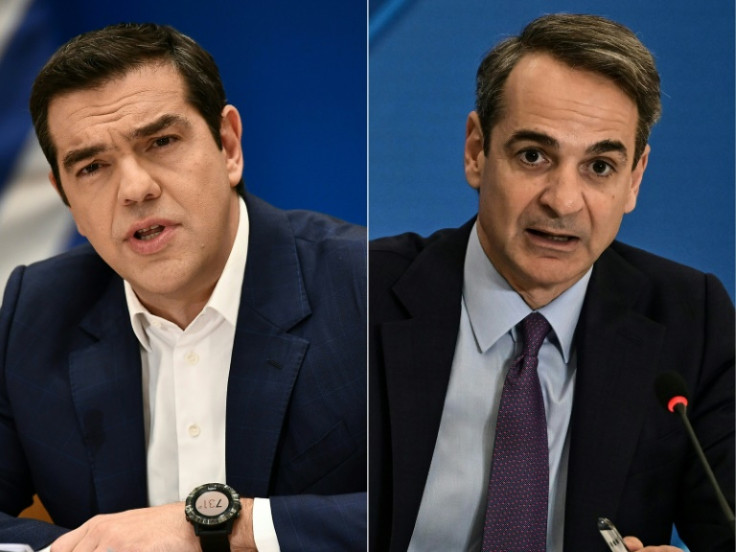Greek Opposition Calls For No-confidence Vote Over Wiretaps

Greece's main opposition leader Alexis Tsipras on Wednesday called for a no-confidence vote in the government over a long-running wiretap scandal which he alleged the prime minister had personally masterminded.
The leftist former premier told parliament that conservative Prime Minister Kyriakos Mitsotakis was the "mastermind and chief behind this criminal network", after revealing that a minister and five top defence officials had been under state surveillance.
Mitsotakis, who is on a visit to Crete, took up the gauntlet, saying: "We are absolutely ready" for the parliamentary challenge.
The no-confidence vote is to be held on Friday. The government can nominally count on at least 156 lawmakers in the 300-seat parliament, enough to survive the motion.
The move comes as Mitsotakis is expected to announce a date for early elections this year.
He had been expected to make an announcement in March, but the no-confidence vote could hasten the decision.
In a rousing speech, Tsipras on Wednesday said his proof of state surveillance came from Greece's communications watchdog ADAE, which recently carried out an audit at the country's telecoms operators.
The ex-premier said ADAE's chairman Christos Rammos had informed him on Tuesday that Greece's then energy minister, its head of staff, army chief, former national security advisor and two officials involved with arms procurement had been under surveillance by state intelligence agency EYP.
Tsipras said Mitsotakis had "consciously lied" for six months and had "thrown the entire weight of his authority" to prevent the truth from coming out.
He said state officials had "hounded" investigative reporters who sought to uncover the scandal and also tried to "bully" Rammos into silence.
Overall, hundreds of people had been monitored by state intelligence in an "Orwellian dystopia knowingly set up by" Mitsotakis, Tsipras said.
The scandal emerged in July when Nikos Androulakis, MEP and leader of the Greek socialist party (Pasok-Kinal), took legal action against an attempt to infiltrate his mobile phone using illegal spyware known as Predator.
After the revelation, Mitsotakis admitted that state intelligence had monitored Androulakis, without disclosing the reason, but flatly denied authorities used Predator.
The government has strongly denied news reports that dozens of prominent Greeks were under surveillance via Predator, including former premier Antonis Samaras, several serving cabinet ministers, military chiefs, media owners and journalists.
Mitsotakis has called the reports "conspiracy theories" and "fairy tales... without a shred of evidence".
In August, the Greek intelligence service chief, as well as a close aide and nephew to the prime minister, both resigned over the socialist leader's surveillance.
The government last month passed a new law setting out tougher wiretap regulations.
But critics have noted that one of Mitsotakis's first acts when he became prime minister in 2019 was to attach the national intelligence service to his personal office.
Tsipras on Wednesday said Mitsotakis had organised the network to "control" and "blackmail" both political opponents and allies.
A judicial investigation and a parliamentary inquiry have so far shed no light on the matter.
On January 20, a report in investigative news site Inside Story said the Greek data protection authority (DPA), another independent watchdog, had found more than 20 cellphones had been targeted with Predator malware.
A few days earlier, the DPA had fined one of the companies reportedly marketing the Predator malware in Greece, Intellexa, 50,000 euros for lack of cooperation with the investigation.
A senior member of the cross-party European committee which investigates alleged illegal use of spyware in EU states, Dutch MEP Sophie in 't Veld, has expressed interest in speaking to both independent Greek agencies.
"I have requested a hearing... with the Greek DPA and ADAE at the shortest possible notice," she said last week.
On a visit to Greece in November, the PEGA committee had called on Athens to do more to investigate the scandal.
© Copyright AFP {{Year}}. All rights reserved.





















